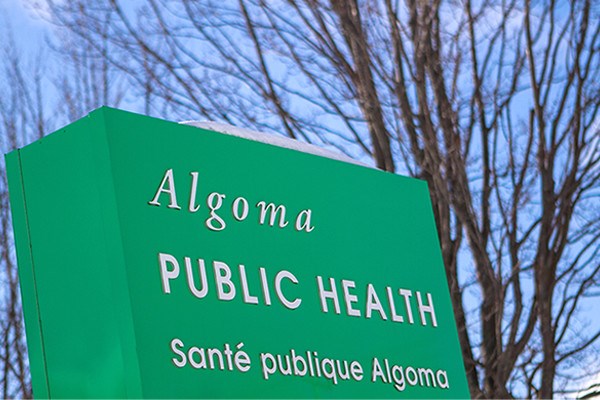In spite of the time and money invested in campaigns dedicated to promoting the importance of sexual health (locally, provincially, nationally and around the world), the number of confirmed cases of sexually transmitted infections (STIs) is on the rise in the Sault and Algoma.
The concern over the rise in STIs in our area, and the urge to safeguard against them, was expressed by Algoma Public Health (APH) in a news release issued Monday as February 8 to 12 is Sexual and Reproductive Health Awareness Week.
The news release said since 2010, gonorrhea has increased by 270 percent and chlamydia by 17 percent in Algoma, while there has also been an increase in syphilis, once rarely seen in our district or Canada.
There are several reasons why the number of confirmed cases of STIs such as gonorrhea, chlamydia and syphilis is on the rise in the Sault and Algoma district, APH has told SooToday.
"Gonorrhea and chlamydia can easily be transmitted through vaginal, oral or anal sex and a lot of people may not consider that they still need to use condoms when they have vaginal, oral, or anal sex," said Carolyn Kargiannakis, APH public health nurse.
"A lot of people also may have the false impression that STIs are under control…but they remain unaware of the fact that we do have an increased incidence of them."
While technology and social media can be a great thing, it can, like everything else, also be a bad thing.
"There is the use of online, hookup apps that are easily available and are being utilized by people within our district (leading to more STIs)," Kargiannakis said.
"It's not only with young people but we're seeing an increase of adults over 30 years old in that hookup culture."
Ironically, the number of people being tested for STI's also may be a factor when considering the reasons behind the increased numbers, Kargiannakis said.
"It may be due to the improvements in testing methods, because testing for gonorrhea and chlamydia is simply done through a urine test for both males and females, so the availability and ease of testing may actually be driving more people to get tested."
"That's a good thing, but then we're seeing more confirmed cases of STIs."
Sexually active people with multiple partners could be a factor as well.
"Even though one person in a relationship may be monogamous, they may assume their partner is monogamous too but that may not always be the case, so people must communicate and talk to their partner," Kargiannakis said.
APH states there has been a 47 percent increase in confirmed cases of chlamydia in people 25 and over in Algoma, though the largest number of confirmed cases of that infection is in the 15 to 24 age group.
With gonorrhea, the largest increase is in the 15 to 24 age group, but also on the rise in people 25 and over.
"We really want to increase awareness of prevention, transmission, the fact that testing for these infections is easily available and it's free, and the fact that treatment for most STIs is easily available and free as well," Kargiannakis said.
"We want to empower our residents within the district to access testing..we're hoping sexually active people will include testing for STIs as part of their health screening."
Testing is available through APH (call 705-541-7100 or toll free at 1-800-726-0398) or your health care provider.
If left untreated, STIs in women can cause pelvic inflammatory disease (PID), complications of which include long-term pelvic/abdominal pain and infertility.
In men, untreated STIs can lead to pain in the tubes attached to the testicles and sterility.
APH's advice is for each person to know his/her status (if they have or don't have an STI), their partner's status, use condoms and have routine testing done.
Another word of caution.
It is becoming more difficult to treat certain STIs.
"With some of these infections, especially gonorrhea, we're seeing a lot of antibiotic-resistant strains across the province and that is a concern," Kargiannakis said, adding it is "absolutely" more important than ever to be careful.
Most faith-based groups teach refraining from sex before traditional, opposite-sex marriage in order to avoid STIs and a host of other problems.
Secular health authorities, including APH, advocate being in a long-term mutually monogamous relationship with a partner who has been tested and has negative STI test results and to use condoms.
